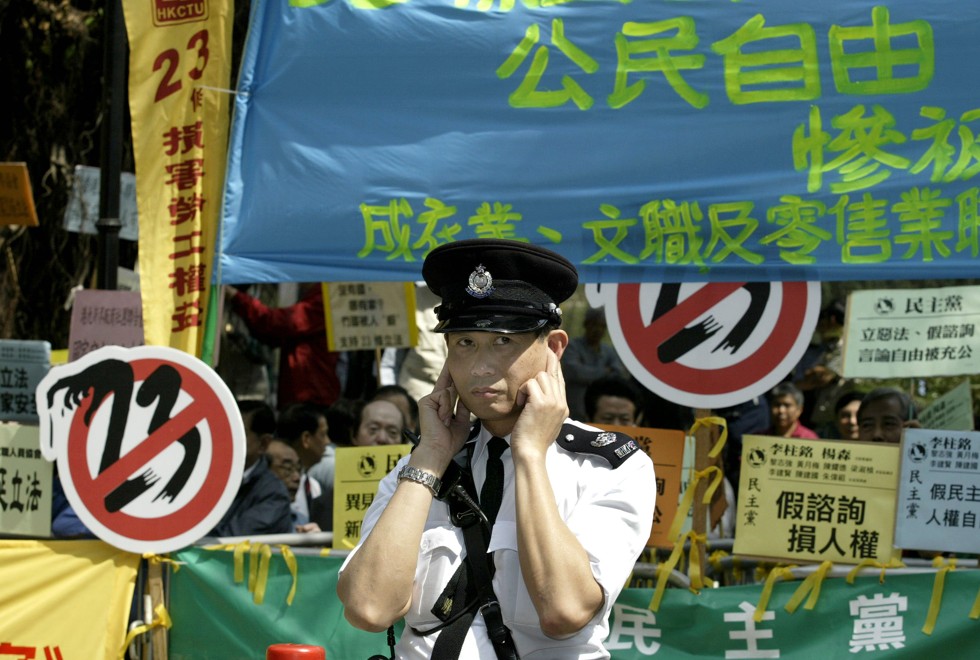
Enact national security laws step-by-step, says former Hong Kong justice secretary
Elsie Leung, who sits on Beijing’s Basic Law Committee, says future government must take lessons from failure to implement Article 23 law in 2003
A former Hong Kong justice secretary said on Saturday that a highly controversial national security law should be enacted “step by step” after taking lessons from the failure to do so in 2003 after a massive street protest.
Leung said it was “very unsatisfactory” that Hong Kong had failed to fulfil its mission to enact a law against treason, sedition, secession and subversion under Article 23 of Hong Kong’s mini-constitution.
The issue became highly sensitive after some 500,000 protesters took to the streets in 2003, fearing the law would endanger various freedoms. The government later withdrew the bill.
As justice secretary at the time, Leung was heavily involved in lobbying for the legislation.
She admitted that the scope of the law proposed by the government was “too broad in one go”, and a future leader should therefore take a step-by-step approach in promoting it.
“Separate it into different laws and enact them one by one ... Let the public digest them slowly before getting them passed,” Leung told i-Cable in an interview.
Leung also said current security laws were outdated and the government should not wait until someone committed actual treason.
“In these more than 10 years, no one from the Hong Kong or Beijing governments has said we have to [enact Article 23] immediately,” Tsang told a forum discussing the future of Hong Kong after 2047 – the year when Beijing’s promise of “one country, two systems” expires.
The other challenges were the implementation of universal suffrage and building up national identity among Hongkongers, he said.
Tsang said there were no immediate solutions to the three challenges, but the next five to 10 years would be a crucial period for the future direction of “one country, two systems”.
To continue the governing principle, Tsang said Hong Kong had to assure Beijing that it would not threaten the sovereignty and security of the country.
Another speaker, veteran Democrat Martin Lee Chu-ming, said human rights should be protected amid concern that Beijing may interpret Article 23 “in its own way” once it was enacted.
“It is like digging our own graves,” he said. Lee helped draft the Basic Law in the late 1980s.


